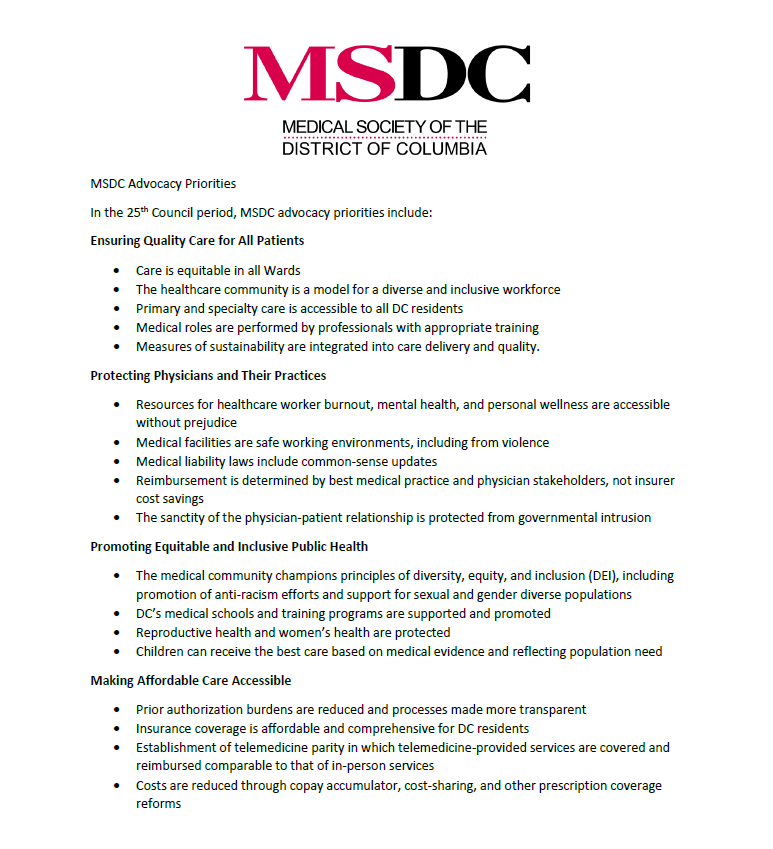PHP and Addiction Resources
The MSDC Physician Health Program is a private, confidential, non-disciplinary program that works to advocate for the health and well-being of all physicians in the metropolitan Washington, DC, area and to safeguard the public.
The Program
is HIPAA compliant and protects the confidentiality of participant records as set forth under DC and Federal law. The program is administered by the Medical Society of DC and is separate from the DC Board of Medicine.
Learn more about this program at our Healthy Physician Foundation page
Support Your Colleagues
Do you want to help support your fellow physicians going through their own struggles? The Healthy Physician Foundation supports the PHP and our efforts to supports physicians in need. Your generous gift allows MSDC to continue this important program and extend our reach to all physicians.
MSDC Announces 25th Council Period Advocacy Agenda
With the current Council of DC legislative period approaching its end, MSDC is pleased to announce its advocacy agenda for the next two years.
At its December 5 Board of Directors meeting, the Board unanimously approved its advocacy priorities for 2023-2024. The agenda is modeled after the one the Board approved two years ago and establishes the Society's advocacy priorities during the next Council period. The agenda was updated and reviewed by MSDC's Advocacy Committee prior to the Board meeting.
As seen below, the agenda focuses on four areas that help make the District "the best place to practice medicine":
- Ensuring Quality Care for All Patients
- Protecting Physicians and Their Practices
- Promoting Equitable and Inclusive Public Health
- Making Affordable Care Accessible
Most of the priorities remain similar from the 2021-2022 document, as this one seeks to build off of a series of major advocacy wins this Council period. A summary of this session's advocacy successes will be published in the near future.
Making the list this year are a few new or
adjusted priorities. Nationwide challenges to the expertise of
physicians led to clearer calls for advocacy in areas like children's
healthcare, reproductive health, and health facility safety. The
document also includes for the first time advocacy for "measures of
sustainability" to reflect concerns about environment change and
medicine. Telemedicine is also explicitly spelled out as the pending end
of the federal public health emergency and insurer practice changes
endanger the effectiveness of this important medical tool.
MSDC
also looks to build on its unprecedented grassroots and testifying
record this Council period. MSDC members and physicians who want to become more involved in local advocacy can contact Robert Hay at hay [at] msdc.org.

